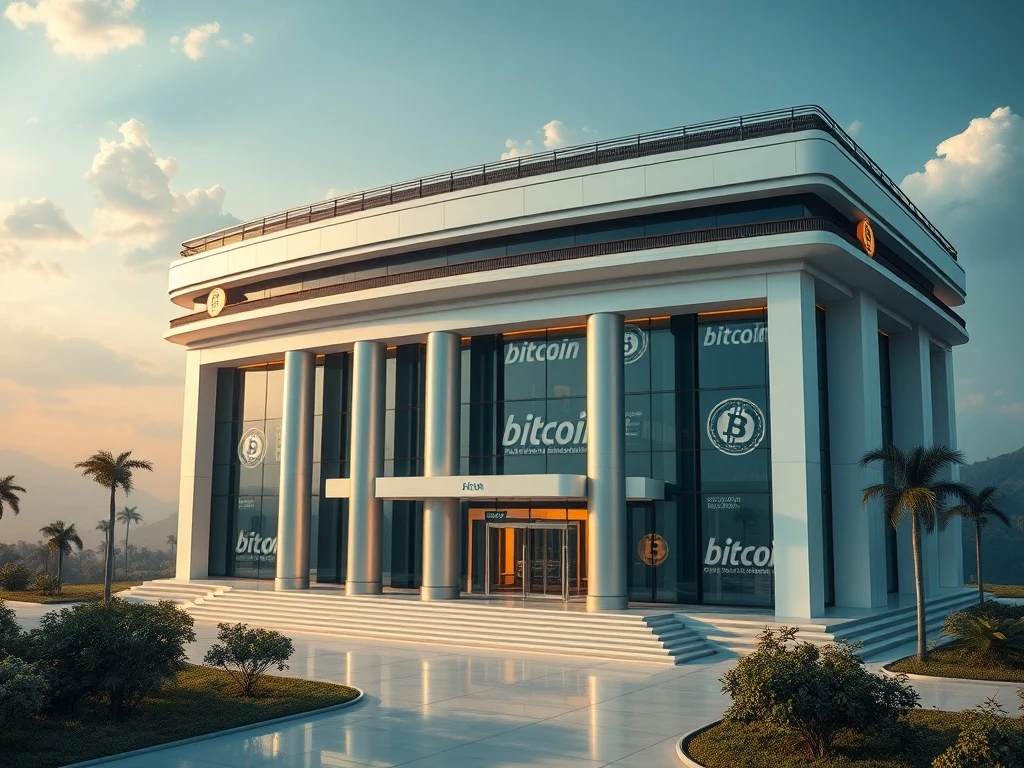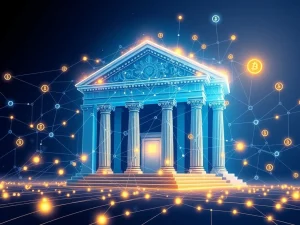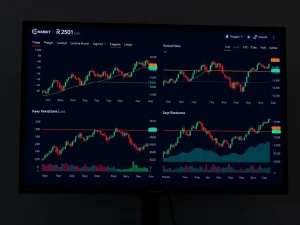El Salvador Bitcoin Banks: New Law Unlocks Investment Potential

El Salvador continues to redefine global finance. The nation recently approved a groundbreaking Investment Banking Law. This landmark legislation paves the way for regulated El Salvador Bitcoin banks. It marks a significant step in the country’s digital asset integration journey.
El Salvador Bitcoin Banks: A New Financial Dawn
This pivotal new law fundamentally distinguishes investment banks from traditional commercial banks. Crucially, it now permits these specialized institutions to hold Bitcoin (BTC) and other digital assets directly on their balance sheets. They can also offer diverse crypto services. These services are specifically for “sophisticated” investors. This group mirrors accredited investors found in the United States. Juan Carlos Reyes, president of El Salvador’s Commission of Digital Assets (CNAD), confirmed these details. He emphasized the law’s progressive nature.
“The new Investment Banking Law allows private investment banks to operate in legal tender and foreign currencies for ‘Sophisticated Investors’,” Reyes stated. “They can also engage in digital assets like Bitcoin with a Digital Asset Service Provider (PSAD) license. With a PSAD license, a bank could choose to operate entirely as a Bitcoin bank.” This development signals a profound shift in traditional banking paradigms within the nation.
Unlocking Bitcoin Investment Opportunities
The newly adopted law aims to encourage foreign investment in El Salvador. It actively positions the country as an emerging hub for finance. Proponents believe this legal framework will attract significant capital. It specifically opens doors for substantial Bitcoin investment. Institutional investors have already driven much of El Salvador’s crypto adoption. The nation continues to attract crypto companies and financial firms. This is due to its notably pro-crypto regulatory climate.
However, critics express concerns. They argue that the country’s Bitcoin adoption and regulatory policies primarily benefit the government and large businesses. They contend these measures do not significantly help the average person. For instance, the International Monetary Fund (IMF) noted El Salvador has not bought Bitcoin since signing a loan deal.
The Impact of Digital Asset Banking
The introduction of the PSAD license is a game-changer for digital asset banking. This license empowers financial institutions to fully embrace cryptocurrency services. It allows for specialized operations focused entirely on digital assets. This framework could foster a new breed of banks. These institutions will cater specifically to the burgeoning digital economy. This strategic move aims to solidify El Salvador’s role in the global crypto ecosystem. It also provides a clear regulatory path for innovation.
Shaping Crypto Regulation in El Salvador
El Salvador actively forges international partnerships to drive its crypto growth strategy. This proactive approach helps shape crypto regulation in El Salvador and beyond. President Nayib Bukele recently met with Bilal Bin Saqib, Pakistan’s state minister of crypto and blockchain. They shared strategies for nation-state-level Bitcoin adoption. Discussions also included energy policy to foster crypto mining. “The cooperation is essentially based on how emerging economies that are both under the IMF program can leverage technology and other financial instruments for national growth,” Bin Saqib told Crypto News Insights.

Further strengthening its global crypto ties, El Salvador signed an agreement with Bolivia. On July 30, Bolivia’s central bank and CNAD signed a memorandum of understanding. This agreement aims to promote cryptocurrency use. It provides an alternative to traditional fiat currencies. This collaboration comes amidst Bolivia’s severe currency crisis. US dollars are scarce there, making international trade challenging. Consequently, US-dollar-denominated stablecoins are increasingly used as a medium of exchange, according to Tether CEO Paolo Ardoino.
El Salvador as a Global Crypto Hub
These legislative changes and international alliances collectively position El Salvador as a global crypto hub. The nation is actively building a robust framework for digital finance. This includes attracting both capital and expertise. While the path involves challenges, the commitment to innovation is clear. El Salvador’s bold moves continue to influence the global conversation on digital asset integration. The future of finance may well be shaped by these pioneering efforts.










